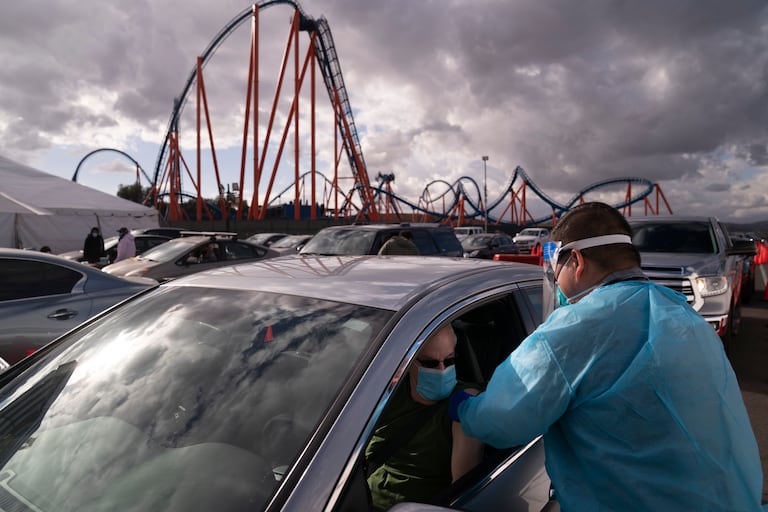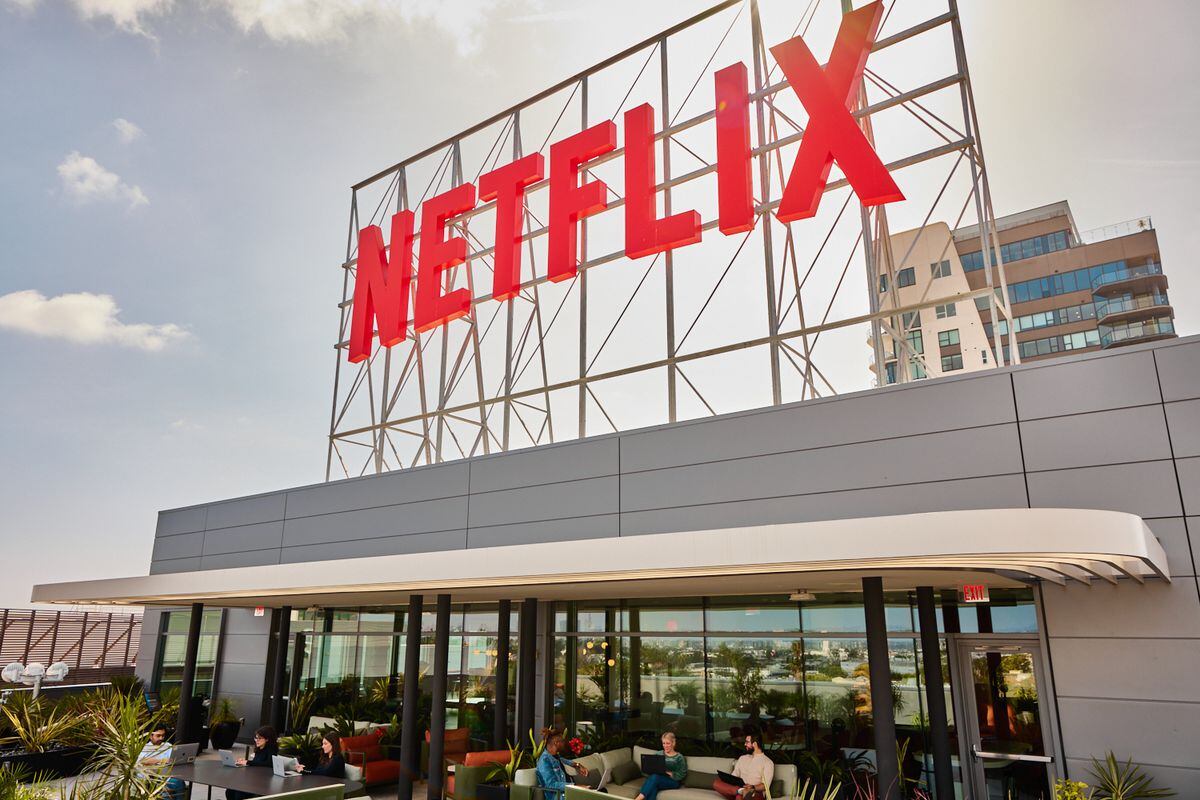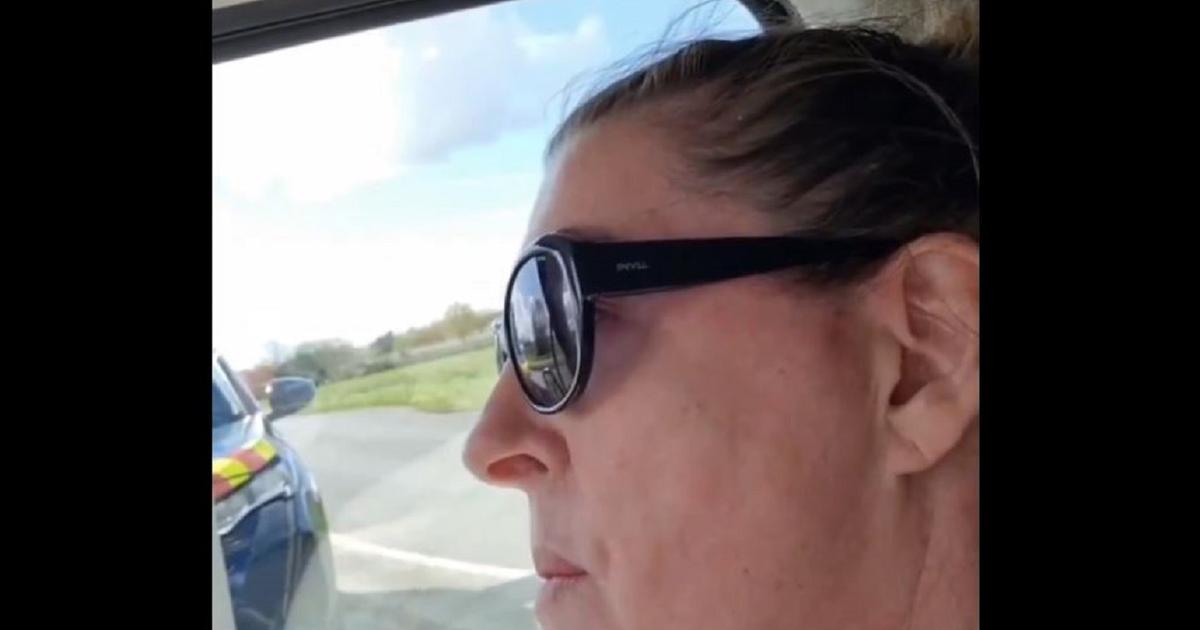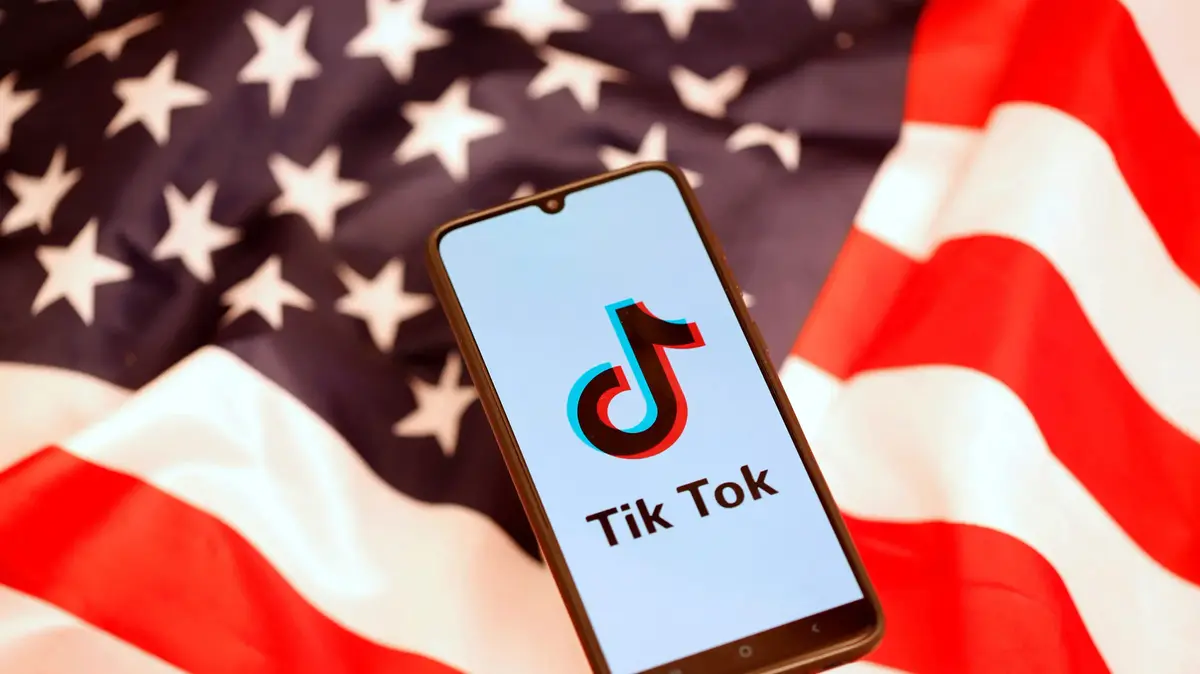A man gets vaccinated in the parking lot of Six Flags, California, in January 2021.Jae C. Hong / AP
It is a fact that in the United States qualifying for a vaccine does not mean that someone can get it right away.
Even being able to occupy one of the first places in the line is not the same for everyone.
ProPublica has found that some vaccination programs carry inequalities by design, and that, intentionally or not, they create barriers that harm those most at risk of dying from the disease.
In many areas of the country, it is more difficult to schedule an appointment to get vaccinated without access to the internet.
Some areas only offer the option of getting vaccinated in centers that only serve people by car, which excludes people who do not have a vehicle or do not have someone to drive them.
Elsewhere, non-English speakers have trouble getting information on government helplines and websites.
One state even steadfastly refuses to allow undocumented workers in high-risk jobs to have priority for vaccination.
The vaccine supply is too scarce to vaccinate all those who qualify and competition is fierce.
The White House rules out sharing vaccines against covid-19 with Mexico and other countries
“My nightmare is that we have a two-tier healthcare system where there are rich, privileged, or connected people, and then everyone else is left,” said Jonathan Jackson, director of the Hospital's Center for Research on Access, Recruitment and Community Engagement. Massachusetts General and Harvard Medical School.
“Once we get to that saturation point, where everyone at the first level has received their vaccinations, the narrative will shift to guilt.
You will say 'why haven't you solved this yet? "
From the moment her 69-year-old father, José Balboa, qualified to get vaccinated, Kristine Mathason has spent part of every day on the phone or online trying to get a vaccination.
He found available appointments several times, but could not find a way to get his father to the vaccination center.
Balboa has left side paralysis as a result of a stroke and needs a wheelchair to get around.
In Miami, where you live, most vaccines are only given to people in cars.
Mathason does not have a van that her father's wheelchair can climb into, and she cannot lift it herself.
To move you from your bed to your chair, your home health aide uses a lift.
It's impossible to use that device to get Balboa into a car, Mathason said, because the doors prevent lifting him with a crane or using the support of two people.
Balboa has even fallen before when his relatives tried to move him.
Mathason says she is "willing to go through all the hoops" it takes to vaccinate her father.
"He's a very high-risk person - he's diabetic, he had a stroke 17 years ago," she said.
“He has high blood pressure.
My half brother, who lives with him, works in a restaurant, that is, a high-risk job.
We do everything possible ”.
Mathason investigated every avenue he could think of, but each one turned out to be a dead end.
He tried to rent a truck, but is unemployed due to the pandemic and could not afford it.
He thought of Uber, but wheelchair access and the cost of waiting at the vaccination site were prohibitive.
"My father is one of those people who, unfortunately, is falling behind," he said.
There is a service in the county that offers transportation for seniors, but it only serves one particular destination and you wouldn't wait with Balboa in line for car vaccination service.
There's an added downside: scheduled trips require 24-hour notice for departure, but the local hospital that offers walk-in care schedules them less than 24 hours in advance.
The Miami-Dade County Health Department indicated that our questions should be directed to the state health department, which did not respond to requests for comment for this story.
According to statistics from the Centers for Disease Control and Prevention (CDC), approximately 14% of adults in Florida have disabilities that affect their mobility, which the CDC defines as serious difficulties to walk or climb stairs.
While some people with mobility limitations can access a car more easily than Balboa, he and his family had very few options.
"I just wish they had thought of people like my dad," Mathason said.
“What about people who don't have someone like me trying to move heaven and earth to get them a date?
What about people who don't have a vehicle and can't get anywhere? "
After more than a month of searching, Balboa received a call from the medical center where he attends his consultations.
They had received a supply of vaccines;
They then stopped by and took him to get vaccinated in one of their wheelchair-equipped vans.
She got her first injection on February 24th.
Without a computer, everything is more difficult
Eneyda Morales, 40, a mother of three in East Hampton, New York, was diagnosed with breast cancer two years ago and is still in treatment.
She works four days a week at a bakery near her home.
"I would like to get vaccinated because of the problem I have and because I also work in a place where I have to serve people," he said.
However, you are not really sure how you will get the vaccine.
While many Americans search for information online, she does not have a computer and does not know how to use it.
She has a
smartphone
, but she only uses it for simple things like looking up directions.
The only computer she has at home is the one her eight-year-old daughter received from school for homework.
New York State has an information line for scheduling appointments by phone, but only for vaccines that are administered at locations run by the State.
In Morales' case, the closest place is about 60 miles (more than 96 kilometers) away, an hour and a half by car.
If you would like an appointment closer to home, you will need to contact your local hospitals and pharmacies directly.
When interested parties call the information line, the recorded message indicates that the fastest way to obtain information about requirements and appointment scheduling is to go online.
Morales plans to get help from OLA of Eastern Long Island, a nonprofit organization.
The idea is to schedule an appointment closer to home and on one of your days off.
Without their help, he said he wouldn't know where to start looking.
Some states that have tried to offer options for scheduling vaccination appointments with methods other than the internet have had problems.
The phone line that was set up in Maryland was inundated with calls from people who complained that they had waited too long for the call to be cut off.
In Tennessee, the decision in Shelby County to allow internet users to sign up before phone appointments opened meant that all shifts were sold out on the internet before phone lines were opened.
According to the Pew Research Center, approximately 10% of the adult population does not use the internet.
Research has found that older Americans with lower income and less education and who are not white are less likely to use the Internet.
This report was produced by
ProPublica,
an independent and non-profit media outlet, and has been co-published in Spanish by EL PAÍS.
Subscribe here
to the
newsletter
of EL PAÍS América and receive all the informative keys of the current situation in the region.




/cloudfront-eu-central-1.images.arcpublishing.com/prisa/KHPTICJMCBFOVJBXCZTJFXANUY.jpg)



/cloudfront-eu-central-1.images.arcpublishing.com/prisa/SLZVRFFDHZA5LH6U26AMIRYYCE.png)






